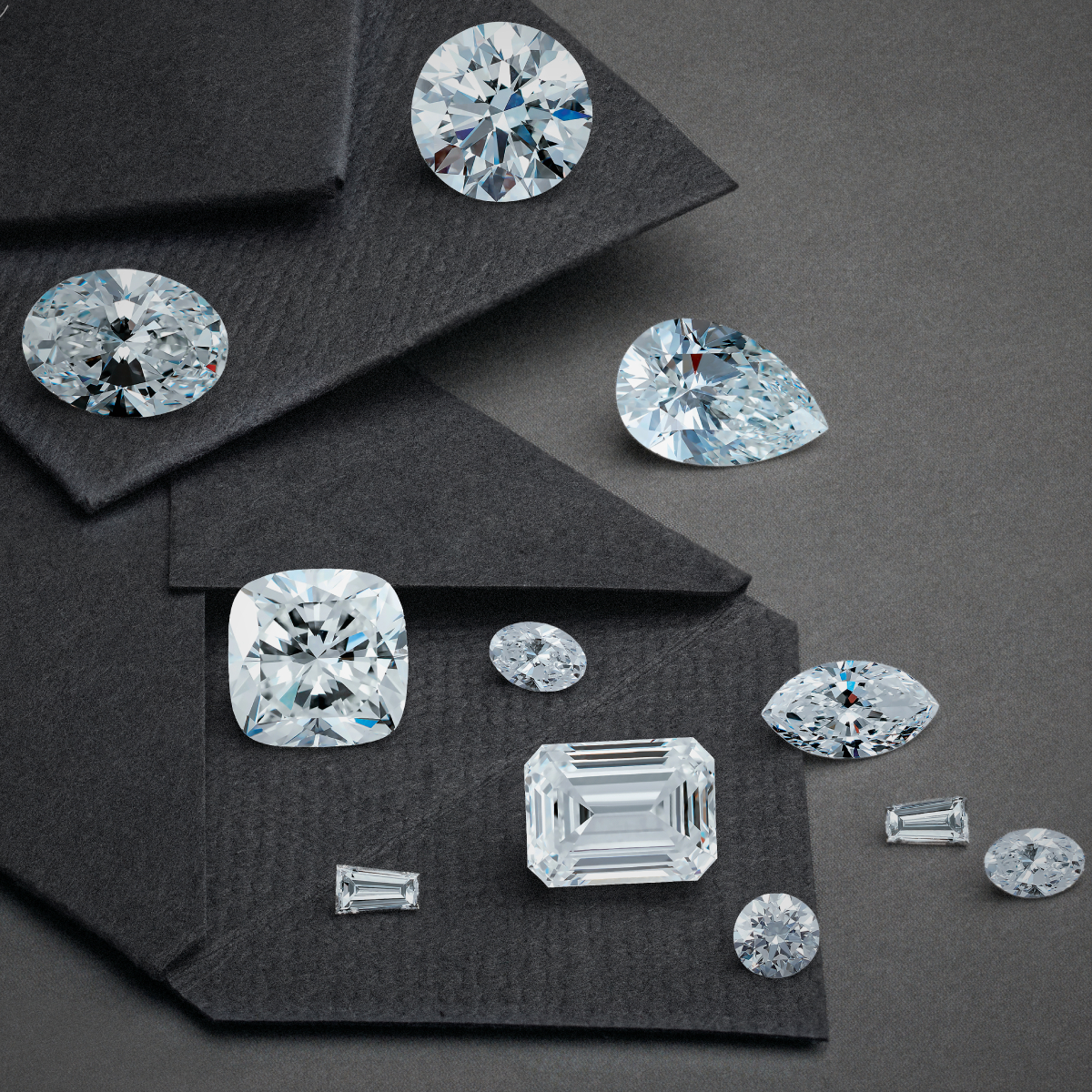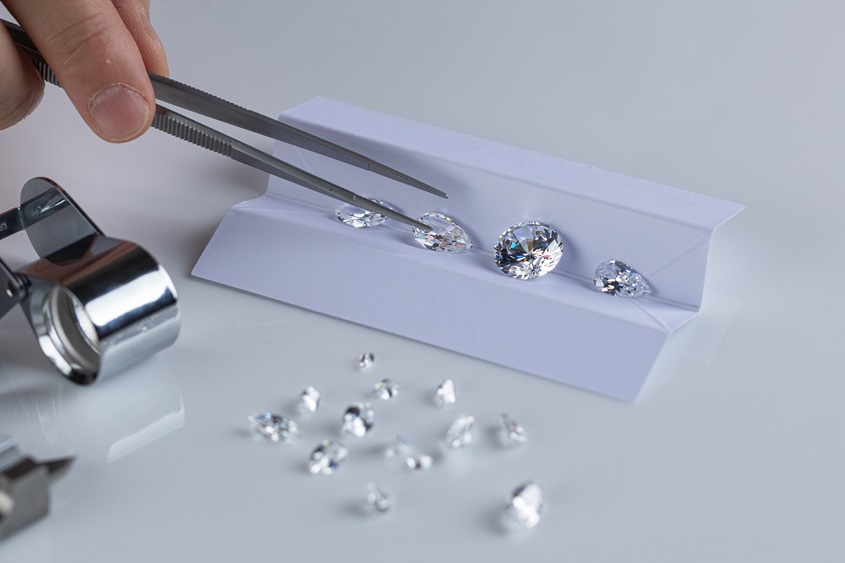What Are Lab-Grown Diamonds?
If you’ve ever found yourself staring at a sparkling diamond, you might have wondered about its origins. Lab-grown diamonds are real diamonds, just like those mined from the earth, but they’re created in controlled environments using advanced technology. They have the same physical and chemical properties as natural diamonds, so you can enjoy the same brilliance without the ethical concerns that sometimes accompany mined stones.
A Brief History of Lab-Grown Diamonds
Lab-grown diamonds first emerged in the 1950s, but it wasn’t until recent years that they gained popularity. As technology improved, the process became more efficient, allowing for larger and higher-quality stones. Today, they’re a legitimate choice for engagement rings and other fine jewelry, attracting consumers looking for both beauty and sustainability.
How Lab-Grown Diamonds Are Made
So, how are these beauties crafted? There are primarily two methods: High Pressure High Temperature (HPHT) and Chemical Vapor Deposition (CVD). HPHT mimics the natural conditions under which diamonds form, while CVD involves using carbon gas to create diamonds layer by layer. Both methods produce diamonds that are virtually indistinguishable from their natural counterparts.
Why Choose Lab-Grown Diamonds?
Ethical Considerations
One of the biggest draws of lab grown diamonds cuts is their ethical appeal. Since they are produced in a lab, they don’t contribute to the environmental degradation or human rights issues often associated with mining. Choosing a lab-grown diamond means you can flaunt your bling with a clear conscience.
Cost-Effectiveness
Let’s be real: everyone loves a good deal. Lab-grown diamonds typically cost 20-40% less than mined diamonds. This price difference means you can get a bigger or higher-quality stone for the same budget, allowing for more sparkle without breaking the bank.
Understanding Diamond Cuts
When it comes to diamonds, the cut is everything. It not only affects the diamond’s appearance but also how it reflects light, which is crucial for that stunning sparkle we all admire.
The Importance of Cut in Diamonds
The cut of a diamond can influence its brilliance and overall aesthetic. A well-cut diamond will maximize light reflection, while a poorly cut one can appear dull. Think of it like a well-cooked steak: if it’s not done right, it can lose its appeal, no matter how good the meat is.
If you’re looking for beautiful and unique diamonds, visit us at novitadiamonds.de. Click the link to browse our collection and place your order today!
How Cut Affects Sparkle and Brilliance
Cut impacts how light interacts with the diamond. A diamond with an ideal cut will have optimal proportions, allowing light to enter and exit the stone perfectly. This is what gives it that fiery sparkle that makes your heart skip a beat!
Different Types of Cuts
Diamonds come in various cuts, lab made diamonds, each with its unique flair. Here are a few of the most popular:
Round Cut
The round cut is the classic choice. With its 58 facets, it’s designed for maximum brilliance and is a top pick for engagement rings.
Princess Cut
This cut is known for its contemporary style and square shape. It offers a great sparkle and is perfect for those who prefer a modern look.
Emerald Cut
With its long lines and step facets, the emerald cut is all about elegance. It’s less about sparkle and more about clarity, showcasing the diamond’s color.
Asscher Cut
Similar to the emerald cut but square, the Asscher cut has a vintage vibe and a unique optical effect that makes it stand out.
Cushion Cut
This cut combines a square shape with rounded corners, resembling a pillow. It’s romantic and has been gaining popularity in recent years.
Marquise Cut
With its elongated shape, the marquise cut can create the illusion of a larger stone. It’s a great option if you’re looking for something distinctive.
How Lab-Grown Diamonds Are Cut
Technology in Diamond Cutting
Lab-grown diamonds are cut using advanced technology that ensures precision. High-quality cuts can significantly enhance the beauty of the stone, making it sparkle even more.
Laser Cutting Techniques
Laser cutting has revolutionized the diamond industry. This method allows for intricate designs and precise cuts that maximize the diamond’s brilliance.
Hand-Cutting vs. Machine-Cutting
While machine-cutting is efficient and accurate, hand-cutting adds a personal touch. Many jewelers still use traditional techniques, believing that a hand-cut diamond can possess a unique charm that machines can’t replicate.
Choosing the Right Cut for You
Personal Style and Preference
Selecting a diamond cut should reflect your personal style. Do you prefer modern and sleek, or classic and timeless? Your diamond should resonate with your personality.
Setting and Occasion Considerations
Think about how the diamond will be set. Some cuts look better in certain settings. For instance, a round cut pairs beautifully with a solitaire setting, while a princess cut can shine in a halo setting.
Care and Maintenance of Lab-Grown Diamonds
Cleaning Your Lab-Grown Diamond
To keep your diamond looking its best, regular cleaning is essential. You can use a gentle soap solution and a soft brush to remove dirt and oils that accumulate over time.
Storage Tips
When it comes to storing your diamond, keep it in a soft pouch or a separate compartment to avoid scratches. Remember, diamonds are tough, but they can still be chipped or damaged if not cared for properly.
Conclusion: The Future of Diamond Cuts
As technology advances, the world of lab-grown diamonds continues to evolve. From stunning cuts to ethical practices, there’s a lot to love about these gems. Whether you’re choosing one for yourself or as a gift, lab-grown diamonds offer a beautiful, sustainable, and budget-friendly option. So, why not sparkle a little brighter with a lab-grown diamond that’s perfect for you?




